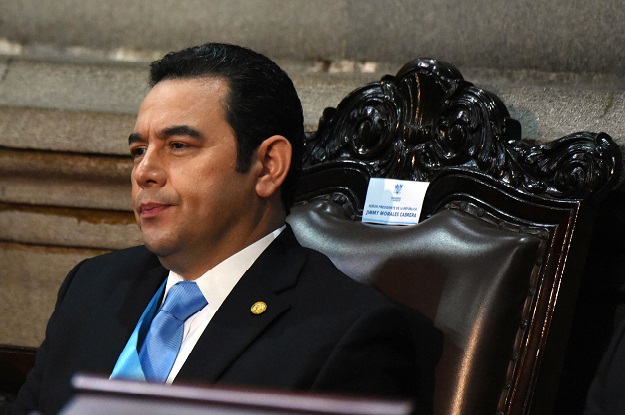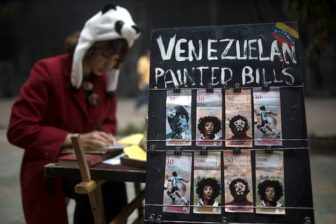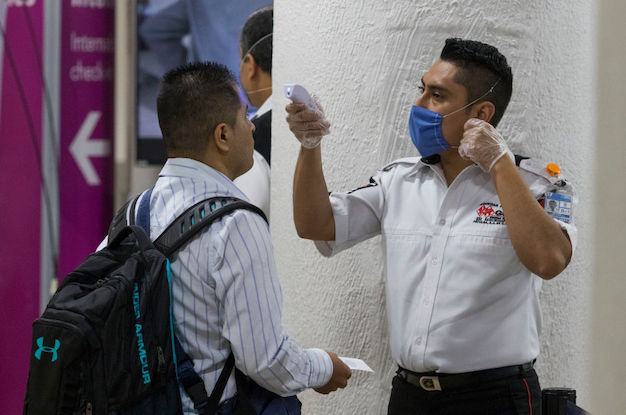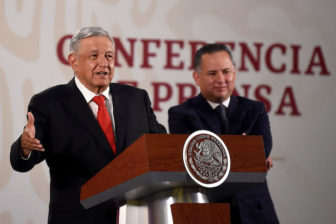The end of CICIG is imminent, with serious implications for Guatemala’s fight against corruption. But expelling the UN-backed anti-corruption commission could also spell trouble for the country’s economy, prominent business figures and experts warn.
Since its creation in 2007, investigations by the International Commission Against Impunity in Guatemala (CICIG) have helped prosecute a sitting president and two former presidents. The commission has also leveled multiple corruption charges against the current one, Jimmy Morales. Last year, Morales announced he would let CICIG’s mandate expire in September. But at the beginning of January, he tried to expel its personnel, nine months early. The expedited termination of the commission, which was founded as an agreement between the UN and the Guatemalan government, has raised concerns and could affect the country and local business access financing.
On Jan. 9, a Moody’s investor service report said that expelling CICIG would result in a credit negative rating for the country. This put Guatemala’s business community on alert. Its immediate effect is that interest rates could go up.
“Foreign investment has constantly declined in the last five years,” said Juan Carlos Zapata, executive director of the Guatemalan Development Foundation (Fundesa), to AQ. “Investors are concerned about the country’s precarious rule of law and about some questionable court rulings that have hurt businesses,” he says.
But Zapata considers the investors are more concerned about getting proper regulations than with the future of CICIG. “Regardless of what happens, the fight against corruption will continue,” he says.
Other critics of Morales’ decision suggested breaking Guatemala’s commitment to the UN could deter foreign investment.
“Who would risk investing in a country where there are no legal guarantees?” asked Marielos Chang, co-founder of Red Ciudadana, an organization that promotes open government and transparency in elections. “Ethical companies that care about transparency and compliance will not want to invest in a country like this one,” she told AQ.
“The way the government is trying to terminate the CICIG agreement before its time sends a terrible message to the international community and to investors,” Phillip Chicola, a political analyst, told AQ. “A country that doesn’t respect its courts is telling investors that that their assets are at risk.”
However, so far the domestic business community has backed Morales, as many of its leaders have been imprisoned or indicted as a result of CICIG investigations. Guatemala’s largest business chambers, CACIF and CIG, publicly backed his latest effort to expel CICIG, even though a May 2018 poll by CACIF found that 81 percent of businesspeople thought that corruption was bad for business. What could be the cost of ending the fight against corruption now?
Estuardo Porras-Zadik, a prominent businessman and one of CICIG’s biggest and loudest supporters within the business community, is anticipating the Morales’ crusade against CICIG will worsen economic conditions. If the president doesn’t backtrack, international buyers may move on to other markets in the region, Porras-Zadik told AQ.
“If this crisis continues, it’ll have a huge cost for us in the long term,” said Porras-Zadik.
Even before the latest crisis began in January, Guatemala’s Central Bank predicted 2019 would be a complicated year. According to its perception index published in December 2018, not a single economic analyst polled thought it was a good time to invest in the country. Of those polls, 44 percent said it was a bad time to invest and 56 percent were unsure.
Porras-Zadik told AQ that it’s possible that CICIG’s termination could see the economy revive and start growing again – but only in the short term. “Those business people who were afraid of being prosecuted and going to prison will have nothing to fear, and the system will go back to how it was: completely corrupt.”
As precarious as the political situation might seem, not everyone is as pessimistic about the economy.
“In general terms, there’s a divorce between the economy and politics in Guatemala,” sociologist Gustavo Berganza told AQ. Presidents have gone to prison and elites have been prosecuted, but to this day there aren’t any investors who have left the country because of CICIG, he said. However, it’s still too early to know if any will leave after the commission shuts down.
—
Enríquez is a journalist based in Guatemala








